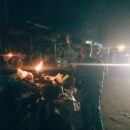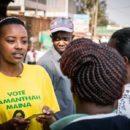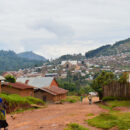Then they came for Al Jazeera: South Sudan press freedoms further deteriorate
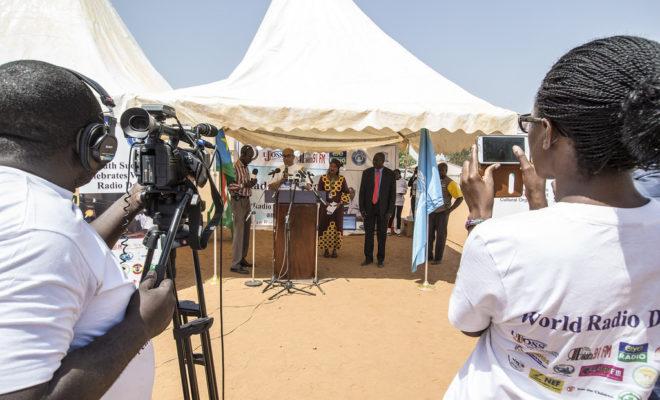
The free media is facing ever greater restrictions just when it is needed the most.
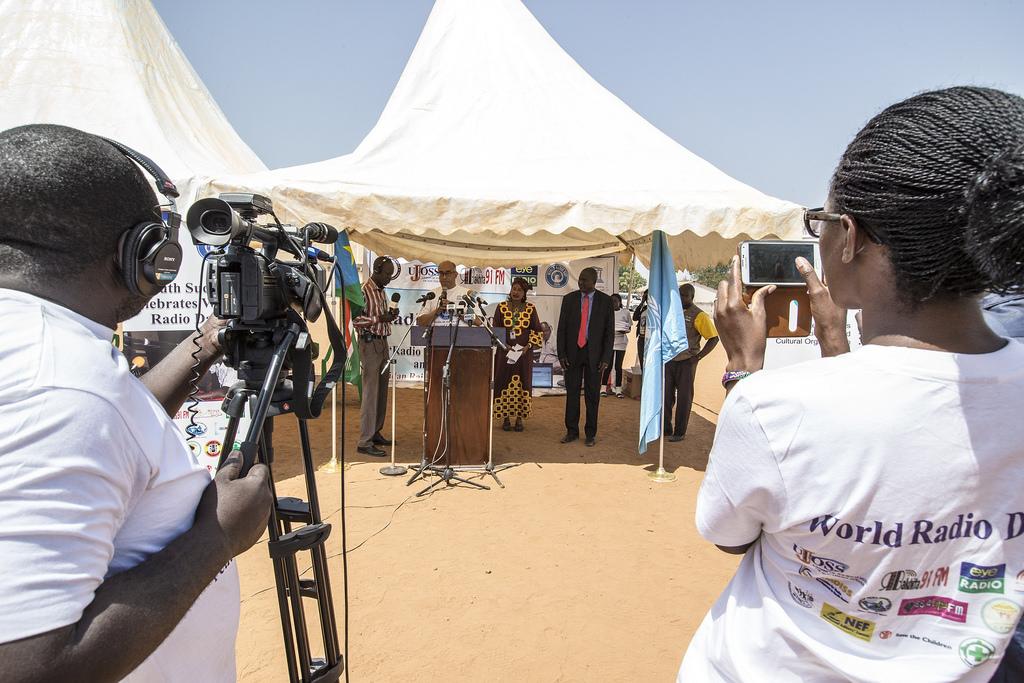
The media environment has been deteriorating almost from the moment South Sudan gained independence. Credit: UNMISS.
This Monday, South Sudan’s government dealt one more blow to the free press as it reportedly suspended the activities of the Al Jazeera bureau in Juba until further notice.
The directive came after the news network aired a report last month from the rebel-held area of Kajo Keji. The broadcast documented mass displacement resulting from fighting between government troops and opposition forces.
The government’s Media Authority denied the Qatari broadcaster has been suspended, instead citing “an administrative issue” but giving no details.
Repression of the media in South Sudan is not new. Last week, Reporters without Borders ranked the country 145th out of 180 countries, five spaces down from last year, in its 2017 World Press Freedom Index. The Committee to Protect Journalists has listed South Sudan as the fifth worst in its global impunity index two years in a row.
In fact, South Sudan’s media environment has been worsening almost from the moment the country gained independence in 2011. Since 2012, at least nine journalists have been killed, but no perpetrators have been brought to book, while many others have been harassed and arbitrarily detained.
Numerous media houses that have been critical of the government – such as The Citizen, Al-Rai, Freevoice and the Nation Mirror – have been shut down within the last two years. Local radio stations have come under threat for allowing live phone calls and open debates. And the Catholic-run Bakhita Radio and the USAID-funded Eye Radio were both temporarily banned before being reopened after intense pressure.
For those that manage to stay open, there are new levels of state censorship to navigate. Since 2016, national security agents have been deployed at printing facilities to remove articles that are unfavourable to the government. At least twenty articles have been removed in this way so far this year. As a result, some media houses are engaging in much greater self-censorship to avoid having blank spaces in their publications the next morning.
South Sudan’s government has typically focused its efforts on local media, but they have more recently applied similar pressure on international outlets.
The Media Authority has denied media accreditation or visas to at least 13 foreign journalists this year. In December 2016, AP reporter Justin Lynch was expelled from the country. And at the end of April, NPR journalist Eyder Peralta was detained and held for four days before he was released on 1 May. He returned to Kenya but his South Sudanese assistant is reportedly still being held.
Peralta’s discharge came on the same day that Al Jazeera’s operations were closed down.
[South Sudan: The UN’s deafening silence over its jailed journalist]
Protecting the media
South Sudan’s Media Authority is supposed to ensure that media development and press freedoms in the country are consistent with the constitution and international guarantees. It is meant to do this independently of the government.
However, this is far from the reality. The body is in fact filled with presidential appointees including members of the national intelligence and security apparatus.
Last year, Wol Deng Atak, the deputy head of Information Commission, a sister body to the Media Authority resigned, citing the absence of political will and institutional support to ensure the commission’s independence.
If the media environment is to be improved, robust reforms are desperately needed. This is required not just in the terms of media law, but well beyond.
The security service’s broad powers of arrest, its ability to search and seize private property without a judicial warrant, and its expansive surveillance powers with no independent oversight or due process need to be withdrawn.
Similarly, the independence of the judiciary must be better protected. Currently, journalists and other proponents of media freedom are unlikely to find justice through the courts. The justice system of the world’s youngest country also needs serious attention if it is to be able to act independently of the executive.
Healing and dialogue
South Sudan’s 2015 Peace Agreement provided for various legal and institutional reforms. But it did not cover important matters of press freedoms, focussing only on the public broadcaster SSBC.
[Failing South Sudan: First as Tragedy, Then as Farce]
However, with the country’s conflict still raging, and the UN mission in the country saying the peace deal requires “significant resuscitation”, it is crucial that the media environment is part of discussions going forwards.
On 3 May, Agostino Njoroge, deputy chair of the Joint Monitoring and Evaluation Commission (JMEC), the body overseeing the implementation of the peace deal, called for greater press freedoms. He emphasised the crucial importance of an objective and independent media in combatting hate speech and in promoting peace.
“The media, in South Sudan, like it is globally can offer a platform for various voices that seek to promote tolerance, dialogue, cohesion and compromise,” he said. “This will ensure an all-inclusive national healing and dialogue and also shape the development agenda of the country”.
If combined with concerted pressure and practical punitive measures from regional and international partners, there is perhaps some hope. South Sudan’s neighbours may not be angels themselves when it comes to guaranteeing media freedoms. But they surely recognise that the dire situation in South Sudan − from which thousands are fleeing every single day − requires intervention, and that a media that is able to report freely and combat misinformation is essential to this.
According to the UN Plan of Action on the Safety of Journalists and the Issue of Impunity, the result of supressing the media is “a society where fearful citizens resort to self-censorship and where it is not possible to make informed decisions”.
This describes South Sudan today well. But as the death toll from fighting continues to rise, hate speech spreads, and the humanitarian crisis deepens, the country’s citizens, civil society and government desperately need to be able to make informed decisions. The importance of an impartial, independent and free media is greater than ever.


